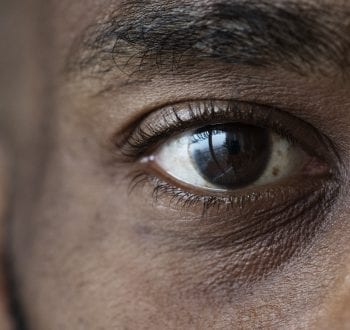
The Loneliness Project?
We send out a weekly newsletter every Friday. Just leave your email address with us for the latest news, exclusive updates and offers from the Living Well Alone Project.
Three friends forward on the same link to an article on the loneliness crisis.
At the pub, someone jumps immediately to a story about an older person who spends days and weeks by themselves.
A colleague, on learning that the UK Government has published its strategy for tackling loneliness, says ‘isn’t this basically what you do?’
All of this is well intentioned and interesting. And goodness knows it’s important.
But here’s the thing that might be surprising to you: we don’t run a loneliness project. We run a project for people who live alone. And that, to us, is a very different thing.
What is the Living Well Alone Project?
The Living Well Alone Project brings together an amazing group of humans. It creates a sense of community around a group of people who, by the very nature of the way they’ve chosen to live, might not realise they’re part of one.
The Living Well Alone Survey tells us that they’re an interesting bunch. They are teachers, nurses, software developers, lecturers, construction workers, taxi drivers, civil servants, working in comms, property development, accountancy and psychotherapy, and spending their spare time doing photography, gardening, hiking, studying, investing, reading, going to the theatre and so on. Some of them have pets, some of them don’t. Some of them are in relationships, some of them aren’t. Some of them have lived alone for a long time, others are new to it.
The Project celebrates this community’s diversity, independence, resilience and spirit, and taps into their stories – their sheer wealth of experience – to empower others living alone to have happy, healthy, connected lives.
It’s a project for people who live alone.
The challenges of living alone
The challenges of living alone are unique, and multiple. When you start, you’ll find there’s a steep learning curve involved that exists no matter your age, or circumstances. How to run a household by yourself. Eating healthily every day when you don’t feel like cooking. Staying disciplined about cleaning, housework, laundry, exercise. DIY when the task needs more than one person. How to stay safe. Coping if you get sick. Learning how to genuinely enjoy and make the most of your freedom and independence. Braving the inevitable meals out, cinema and theatre trips, even holidays by yourself, when you do not necessarily have a significant other to call on. And, in some cases, coping with the repercussions of divorce, separation and bereavement alongside all of this.
These challenges are real. And ‘staying meaningfully connected’ to others (or, in other words, avoiding loneliness) is another almost inevitable challenge when you live alone. Some people find that they are better at this than others. But it’s only ever been one of the many aspects of solo living that we’ve wanted to explore.
Because this is not a loneliness project: it’s a project for people who live alone.
How are living alone and loneliness different?
For us, the difference is clear. Living alone is a neutral state – it may be positive, it may be negative, it may be a combination of the two, and this may change over time. Someone’s experience of living alone depends on their preferences, their skills, their relationships, their mindset, their resilience, how they started living alone, how long they’ve lived alone for and many other factors. It is not inherently a bad thing – in fact, many of the people who’ve filled out the Living Well Alone Survey revel in their freedom and autonomy, and say that they would find it hard to go back to living with someone else again.
Loneliness, by contrast, is a complex and unpleasant emotional response to isolation. It includes anxious feelings about a lack of connection or communication with other beings, both in the present and extending into the future. Loneliness is not exclusive to being by oneself, and can be felt even when surrounded by other people.
So why the confusion?
Perceptions matter – and we need to challenge them
It happens because perceptions are powerful, and assumptions deeply held. And the perception here is that those who live alone must by definition be lonely. That loneliness resides in those who live alone. That the two states are, essentially, one and the same thing.
This is hugely challenging, for three main reasons.
Firstly, because it’s factually not true. Not all people who live alone are lonely. People who live alone report feeling lonely some of the time – fact. 17% of those who’ve completed the Living Well Alone Survey specifically used the word ‘loneliness’ to describe the thing they least enjoy about living alone. But many others don’t point to loneliness at all – while they may be facing other challenges, loneliness isn’t one of them. And it seems that overall, the positives far outweigh the negatives!
Secondly, because loneliness doesn’t just affect people who live alone. By focusing our efforts to tackle loneliness amongst people who live alone, we avoid an uncomfortable truth: that loneliness is a pervasive condition in our society today. An enormous survey in 2017 backed by the BBC – The Loneliness Experiment – surveyed 55,000 people and found that between 27% – 40% people in all age ranges feel lonely, irrespective of circumstances. While loneliness may, or may not, affect those who live alone, it definitely does affect a great number of people who do not live by themselves.
Professor Eric Klinenburg of New York University, author of ‘Going Solo’ and a researcher in this field, sums this up when he says, ‘To be sure, many [people who live alone] occasionally struggle with loneliness, or with the feeling that they need to change something to make their lives feel more complete. But so, too, do their married friends and family members and, really, most everyone during some periods of their lives.’
It’s clear that we need to tackle loneliness in all its forms, wherever it appears.
Thirdly, because by labelling those who live alone as lonely, we miss the point. Which is that living alone can be an enriching, even life changing experience. And that those who live alone live rich, full, three dimensional lives. They are capable, active, interesting people who have a huge amount to offer to the world. The ‘lonely’ label is neither fair nor helpful.
A focus on connection
The Living Well Alone Project will always acknowledge that connectedness matters, and we will do what we can to support others to create meaningful connections in pursuit of a happy, healthy life. But we will do this in a way that is empowering, recognising that someone’s difficult day, an experience of loneliness, is just that – a difficult day. Not by any means their whole identity.
We send out a weekly newsletter every Friday. Just leave your email address with us for the latest news, exclusive updates and offers from the Living Well Alone Project.






One Comment
Fiona
Interested in both. During my twenty odd years of marriage i spent a lot of time feeling lost and lonely even with company. Im now on my own and if im honest i dp still feel lonelyat times but not as much.